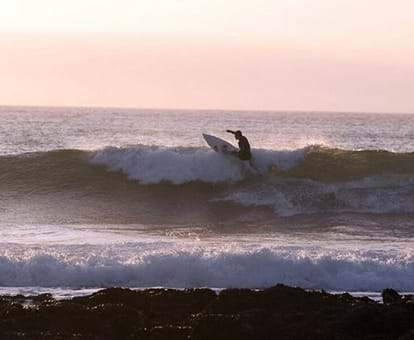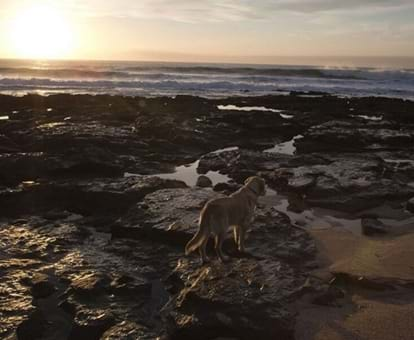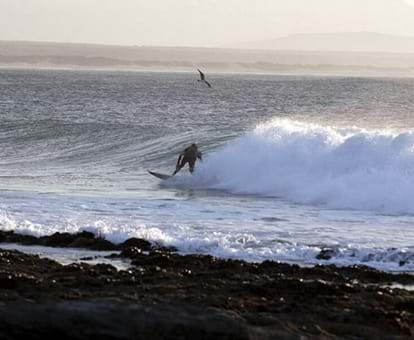By creating an account, I agree to the
Terms of service and Privacy policy
Choose your country and language:
Africa
Americas
Asia Pacific
Europe
WWhen you’re at the beach and looking to get into the water to hitch a ride on some of the most spectacular waves the world has ever seen – there’s no better spot to do this than at Jefferys Bay in the Eastern Cape province.
Discovered by longboarders during the early 1960s, Jefferys Bay, or J-Bay as we like to call it, has the kind of waves that attract surfers from around the world. It’s known among international surfers as having some of the best waves in the world. Halfway between the Gamtoos and Krom rivers, J-Bay stretches from Cape Recife in the east to Cape St. Francis in the west.
AAlthough it’s technically a fishing village, what makes J-Bay special is that a wave can run for up to 800m, offering surfers an unbeatable and everlasting ride.
J-Bay features a number of surf breaks that harness the approaching swell as it meets the offshore reef. The most famous of these is Supertubes or “Supers” where, on good days, a 4ft to 8ft wave runs from the point along the reef and includes a classic barrelling section, before closing out at a spot called Impossibles.
FFurther down the point lies Tubes, a barrelling 4ft to 5ft wave with a short, intense, fun ride that’s best on a southerly or south-westerly swell.
Jeffery's Bay
PPoint is the original wave ridden by the longboarders in the 1960s. Capable of handling a large swell, it promises heavy take-offs followed by a slow wall that’s ideal for carves, cutbacks and the odd barrel. It's a good place to get used to J-Bay on your first visit, and the wave is ideal in the 3ft to 8ft range.
If you’re looking for a bit of peace and quiet, you can head over to Albatross, a little out-of-town spot that's best on a north-westerly wind at low tide.
The topmost section of Supers features left and right breaks at Boneyards and is favoured by locals. The spot earned its name because it breaks on a shallow reef.
If you’re looking for more unpredictable and heavy conditions, then head over to Magnatubes, which work on a north-westerly wind at high tide and results in 3ft to 5ft power surges.
If you are more on the mellow side, Kitchen Window, or “Kitchens”, fires on the mid-tide, offering a fun wave away from the busier spots.
WWaves in J-Bay range from 3ft to 10ft, while 4ft to 8ft waves are more common. It’s advisable to bring two boards – a 6"0' to 6"6' for the smaller waves, and a 6"10' to 7"6' for the big stuff. Better yet, order a custom board, which will be waiting for you on arrival.
Surfers and others who found it hard to leave such an idyllic spot have turned Jeffreys Bay into a year-round fun place to be in, creating a thriving local craft industry besides the surf shops on just about every corner.
Related articles

|Terms and conditions|Disclaimer|Privacy policy|Terms and Conditions-Valentines Campaign



